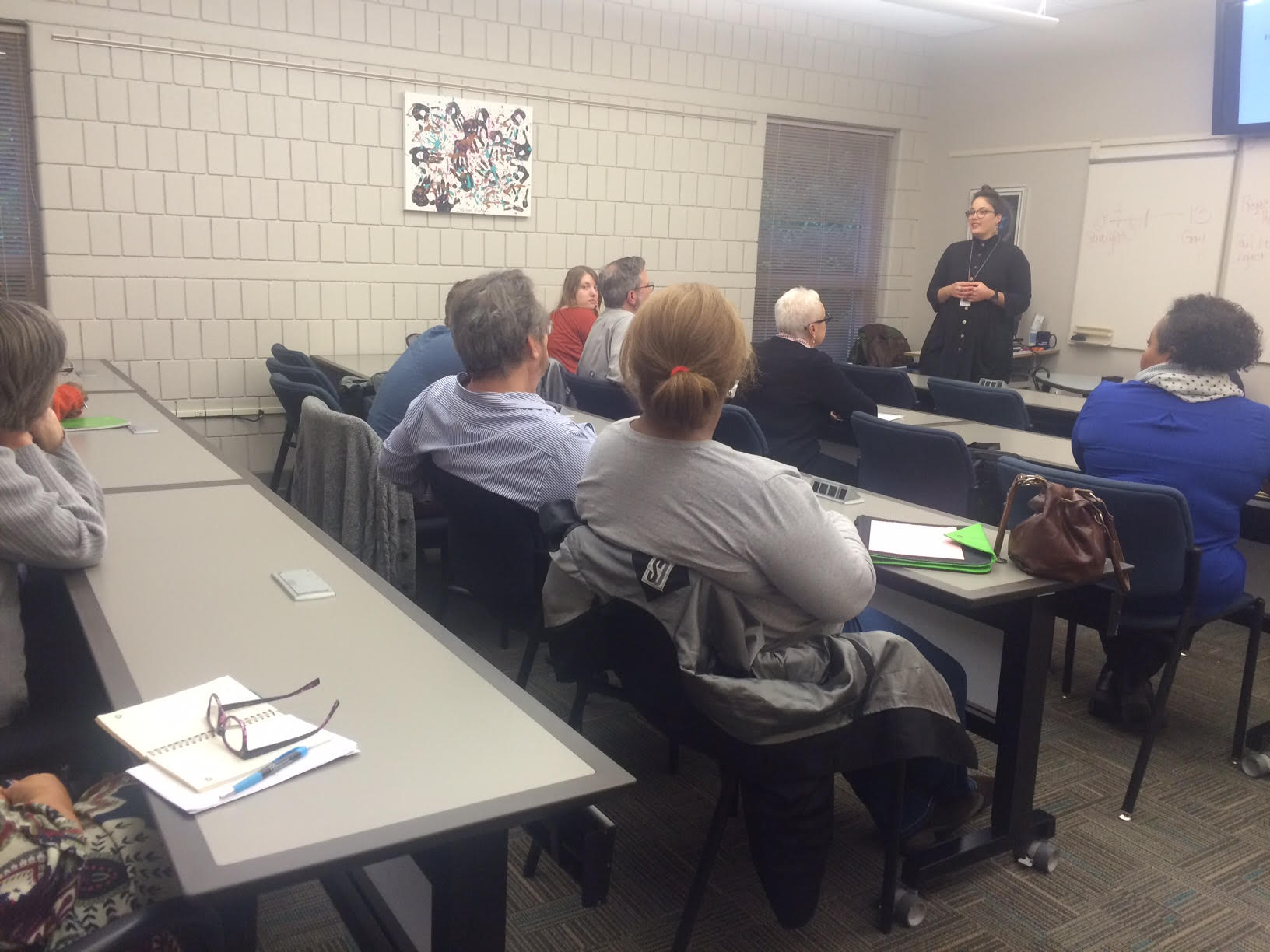On September 29, MSP was pleased to host Rebekka Parker of the DIA for a workshop on how to use Visual Thinking Strategies in clinical psychology.

A few weeks ago, I had the opportunity to visit the Michigan School for Professional Psychology (MSP) and share some of the work we do in the Education Programs department at the Detroit Institute of Arts (DIA). When Carrie Hauser, MSP Coordinator of Admissions & Student Engagement, first contacted me about presenting on the theme of creativity, I knew there would be some rich opportunities to connect our work with the teaching and learning taking place at MSP. After talking a bit with Carrie about the goals for the presentation, I realized our practice of Visual Thinking Strategies (VTS) would be the perfect fit for my topic.
VTS is a research-based facilitation process developed by Abigail Housen, a cognitive psychologist, and Philip Yenawine, a museum educator. We use VTS at the DIA as a tool to support learning and growth in a number of different programs – with our K12 audience in the form of student tours and teacher professional development, in partnership with the Alzheimer’s Association of Michigan for our Minds on Art program for Alzheimer’s patients and their caregivers, and with various other audiences through our public and community programs.
The process uses art to facilitate open-ended, participant-centered discussions with the goal of developing critical thinking, communication, and visual literacy skills. The questions used by facilitators have been carefully designed by Housen and Yenawine to encourage participants to share their interpretations about a work of art, provide visual evidence for their thinking, and foster respect for the many possible interpretations that may be discussed during the course of a conversation. I think it could go without saying that these are some facilitation skills that budding and practiced psychologists can put to good use!
On the day of my presentation, metro Detroit experienced quite the burst of stormy weather. When I arrived at MSP, I discovered students and staff had endured some intermittent power outages at the building throughout the day, but I was pleased to find we still had a nice sized group of staff and students who were eagerly willing to attend my presentation! I was so pleased to have such interest and a warm welcome from Carrie and the group.
Despite a few moments of interrupted power during the presentation, staff and students in attendance were engaged, asked great questions, and we even had time to talk about psychologist Lev Vygotsky and other psychologists whose work informed the development of VTS. I enjoyed hearing from the group about how they could see VTS as a point of interest in their practice as both educators and psychologists.
Visiting MSP and talking with students and staff was helpful in reminding me of the many ways in which VTS might be adapted for different disciplines and practices. One of my favorite parts of my work is sharing teaching and engagement strategies with a wide audience and learning from each group how those strategies can be adapted to facilitate new ways of looking, learning, and thinking.
If you are interested in learning more about VTS, you can visit the Visual Thinking Strategies website. If you’d like to learn about VTS professional development opportunities for educators offered at the DIA, visit the DIA’s professional development offerings page on the website. Also, keep in mind that general museum admission to the DIA is free for residents of Macomb, Oakland, and Wayne counties. Check out our calendar for upcoming exhibitions and events. Come see us soon!
 Rebekka Parker joined the DIA team in 2008, working with the Curatorial and Public Programming departments in a variety of roles before joining the Learning and Audience Engagement Division in 2010. Presently, Rebekka’s position as Education Program Coordinator is focused on collaborating with K-12 educators to design curriculum resources and learning experiences for their students.
Rebekka Parker joined the DIA team in 2008, working with the Curatorial and Public Programming departments in a variety of roles before joining the Learning and Audience Engagement Division in 2010. Presently, Rebekka’s position as Education Program Coordinator is focused on collaborating with K-12 educators to design curriculum resources and learning experiences for their students.